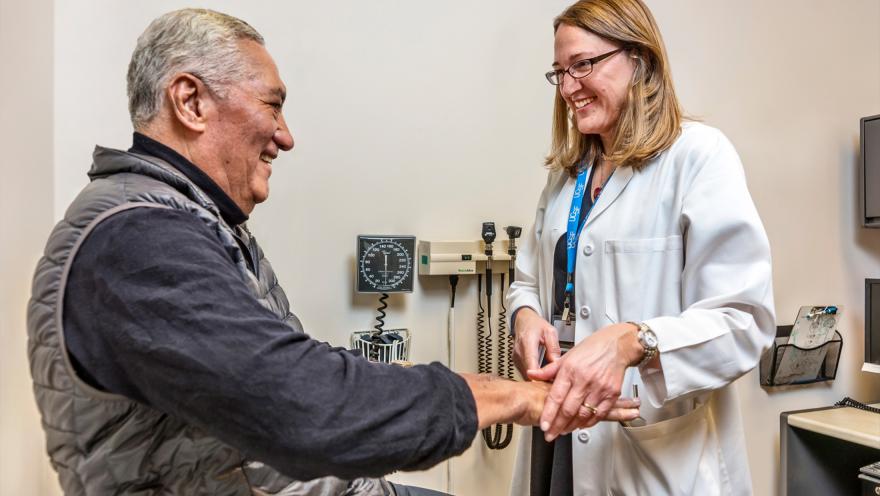The ALS Association has awarded $4.9 million to help speed the testing of ALS therapies through clinical trials. The Association’s inaugural Trial Capacity Awards will support efforts at 13 established and emerging ALS clinical trial sites to increase the number and diversity of people living with the disease who have the opportunity to participate and improve the efficiency and pace at which these studies are conducted.
“There is an urgent need to increase the number and capacity of sites to complement the increase in ALS clinical trials that we are seeing,” said Dr. Paul Larkin, director of research at The ALS Association. “Expanding clinical trial capacity will allow potential new therapies to be tested faster and will improve trial accessibility for people with ALS in currently underserved areas.”
Clinical trials are the most reliable – and ultimately the fastest – way to translate promising laboratory science into new and better ways to treat and care for people living with ALS. However, many people with ALS are currently unaware of clinical trial opportunities, have misperceptions about research, or are unable to access trials because of distance, finances or other obstacles.
The Association’s new Clinical Trial Capacity Awards Program provides up to $400,000 over four years to help eliminate specific barriers or bottlenecks. The program’s first cohort of awardees will use the funding to expand access to trials by removing financial and other barriers to participation, enroll more diverse participants through outreach to non-English-speaking communities and other initiatives, increase the number of trained research staff and improve site-wide efficiency.
Increasing access for underserved populations and communities
- Laura Foster, M.D., University of Colorado Denver ($399,646)
- Terry Heiman-Patterson, M.D., Temple University, Pennsylvania ($400,000)
- Eduardo Locatelli, M.D., MPH, Nova Southeastern University, Florida ($399,828)
- Neil Shneider, M.D., Ph.D., Columbia University, New York ($400,000)
- Jeffrey Statland, M.D., University of Kansas Medical Center Research Institute ($400,000)
- Jackie Whitesell, M.D., Saint Alphonsus Regional Medical Center Research Institute ($123,844)
- Valerie Wojna, M.D., University of Puerto Rico ($396,585)
Building infrastructure and enhancing efficiency
- Ximena Arcila-Londono, M.D., Henry Ford Health System, Michigan ($400,000)
- Stephen Goutman, M.D., University of Michigan ($400,000)
- Hristelina Ilieva, M.D., Ph.D., Thomas Jefferson University, Pennsylvania ($400,000)
- Stephen Johnson, M.D., Mayo Clinic Arizona ($400,000)
- Stephen James Kolb, M.D., Ph.D., The Ohio State University ($399,454)
- Abel Wu, M.D., Kaiser Foundation Research Institute, a Division of Kaiser Foundation Hospitals ($389,153)
For more information about clinical trials for ALS, visit our website HERE.
If you would like to receive monthly ALS research updates, SUBSCRIBE to our newsletter, Research Matters.

